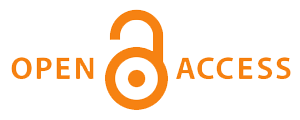دور القيادة الحديثة في تحقيق الاصلاحات الاقتصادية وتعزيز التنمية المستدامة في تركيا: حزب العدالة والتنمية نموذجا
DOI:
https://doi.org/10.34093/9mmrva85Keywords:
Modern leadership, economic reforms, sustainable development, TurkeyAbstract
This study examines the role of modern leadership in achieving economic reforms and promoting sustainable development in Turkey. It argues that comprehensive and sustainable growth is of paramount importance and a priority in government programs. Therefore, reforms are based on adopting innovation as a reform style, and supporting comprehensive legal and regulatory frameworks that support development in all its dimensions.
The study aims to present the most important strategies, policies, factors and capabilities that made the Turkish experience a model to be followed. It also aims to provide recommendations. The importance of the Turkish experience as one of the most prominent regional experiences in the field of comprehensive development emerges by introducing reform programs that can be applied to some Arab countries with similar characteristics to achieve sustainable development.
The study relied on the mixed economy based on cooperation and partnership between the private and public sectors and the avoidance of decentralization. These were among the most important indicators of the development of the Turkish economy. The study followed the descriptive approach in collecting and analyzing information related to the Turkish economy and sustainable development.
The study concluded that achieving economic renaissance cannot happen without combining the economic dimension with organizing environmental and social awareness programs, and strengthening and investing in creative management, as it has an important role in supporting the economy and sustainable policies while preserving values and exploiting local and regional resources. This achieves a better and more sustainable life for future generations.
The study recommended the need to improve the business environment, promote investment, develop infrastructure, protect the environment, and reduce poverty policies in some developing countries. These recommendations can only be achieved with the presence of modern leadership that can overcome all political, legal and legislative obstacles and constraints.
Downloads
Published
Issue
Section
License
The copyright is transferred to the journal when the researcher is notified of the acceptance of his research submitted for publication in the journal.


